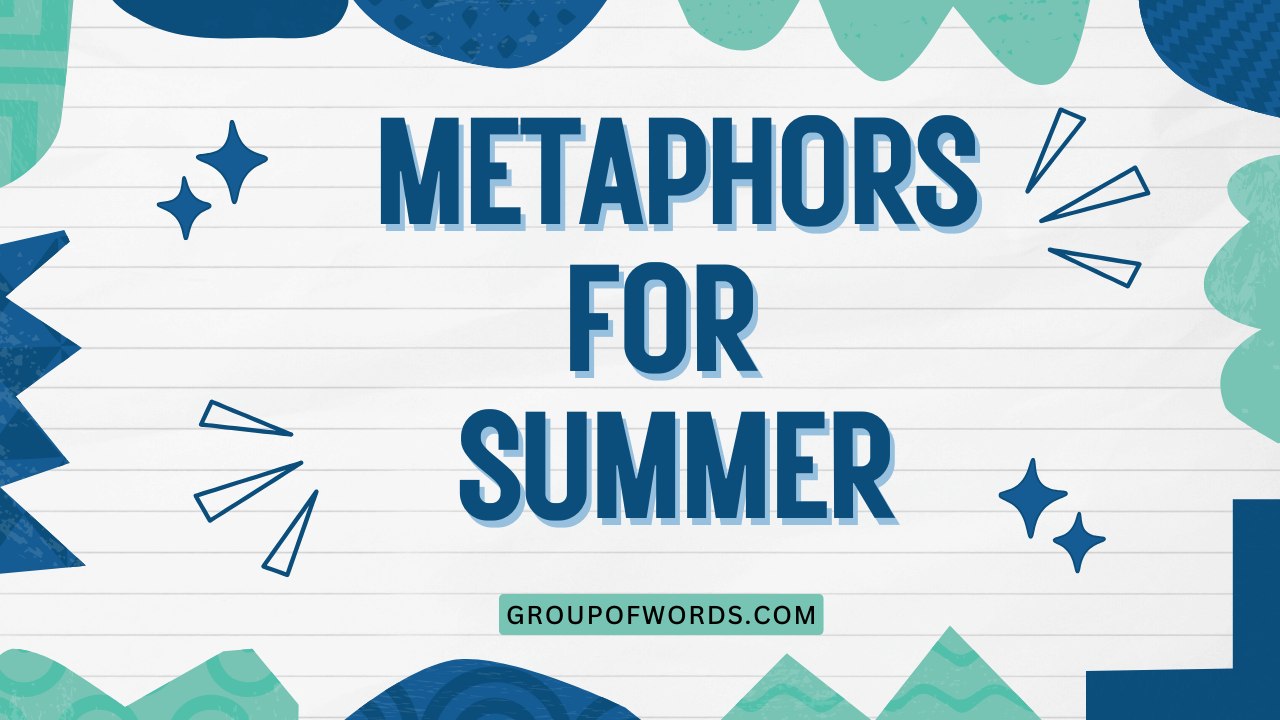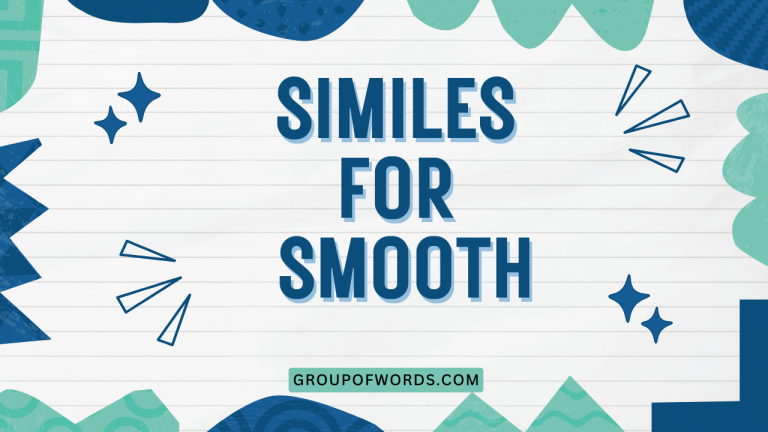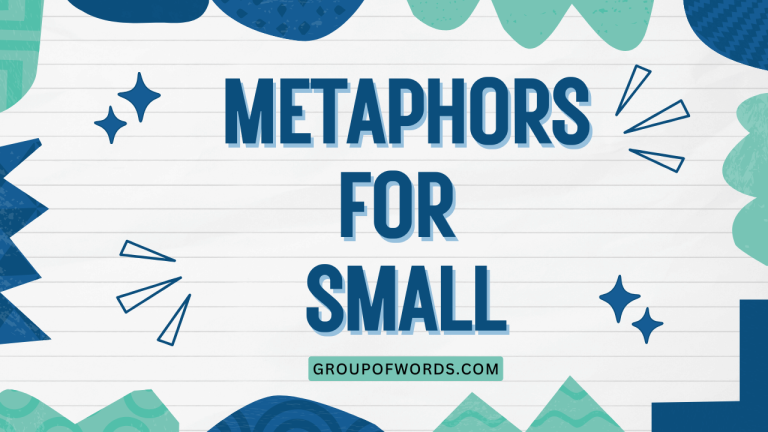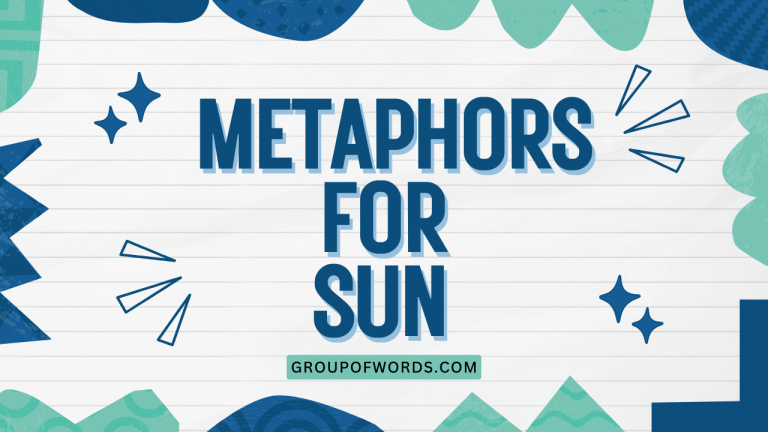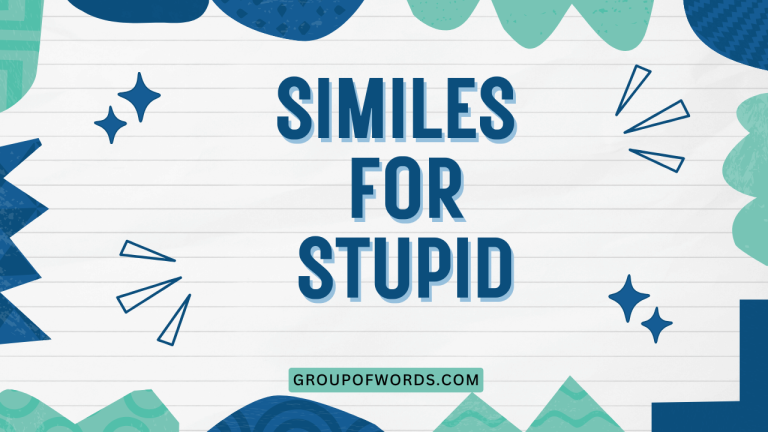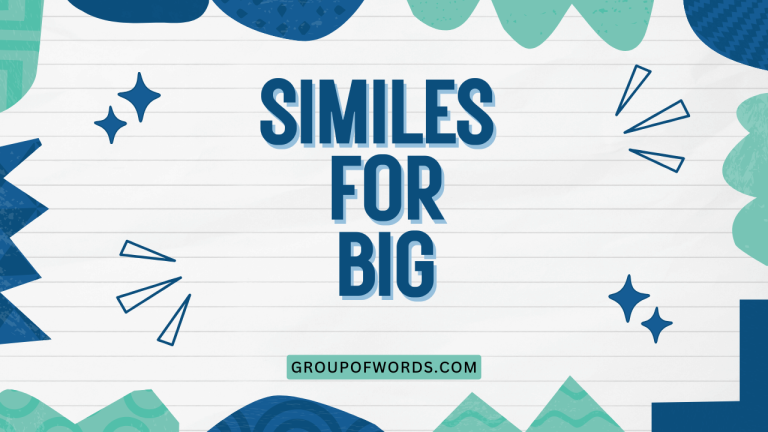Summer Metaphors: A Comprehensive Guide
Metaphors are powerful tools in the English language, allowing us to understand abstract concepts by relating them to something more concrete. Understanding metaphors, especially those related to commonly experienced seasons like summer, enriches comprehension and expression.
This article provides an in-depth exploration of summer metaphors, explaining their function, structure, and various types. Whether you’re an English language learner, a student studying literature, or simply someone who enjoys the beauty of language, this guide will enhance your understanding and appreciation of metaphorical language related to summer.
This article covers everything from the basic definition of metaphors to advanced usage and common mistakes. Through numerous examples and practice exercises, you’ll gain the skills to identify, interpret, and even create your own summer metaphors.
Let’s dive into the sun-drenched world of summer metaphors and discover the richness they bring to our language.
Table of Contents
- Introduction
- Definition of Metaphor
- Structural Breakdown of Metaphors
- Types and Categories of Summer Metaphors
- Examples of Summer Metaphors
- Usage Rules for Summer Metaphors
- Common Mistakes with Summer Metaphors
- Practice Exercises
- Advanced Topics in Summer Metaphors
- Frequently Asked Questions
- Conclusion
Definition of Metaphor
A metaphor is a figure of speech that directly compares two unrelated things without using “like” or “as.” It asserts that one thing *is* another, creating a vivid image and deeper understanding. Metaphors are fundamental to language and thought, allowing us to conceptualize abstract ideas in more tangible terms.
They are essential for creative writing, persuasive speaking, and even everyday communication.
Classification of Metaphors
Metaphors can be classified in several ways, based on their explicitness, originality, and function. Some are direct, while others are implied.
Some are fresh and innovative, while others have become commonplace. Understanding these classifications helps in analyzing and appreciating the nuances of metaphorical language.
Explicit Metaphors: These make a direct comparison, clearly stating that one thing is another.
Implicit Metaphors: These imply a comparison without directly stating it, requiring the reader to infer the connection.
Conventional Metaphors: These are frequently used and widely understood metaphors, sometimes referred to as clichés.
Original Metaphors: These are newly created and imaginative metaphors that offer a fresh perspective.
Function of Metaphors
Metaphors serve multiple functions in communication. They can clarify complex ideas, evoke emotions, add vividness to descriptions, and persuade audiences.
By drawing parallels between seemingly disparate concepts, metaphors can reveal hidden connections and offer new insights.
Clarification: Metaphors simplify abstract concepts by relating them to concrete experiences.
Emotional Evocation: Metaphors can stir feelings and create emotional resonance.
Vivid Description: Metaphors add color and detail to language, making it more engaging.
Persuasion: Metaphors can influence opinions and sway audiences by framing ideas in a particular light.
Context of Metaphorical Usage
The effectiveness of a metaphor depends heavily on its context. Factors such as the audience, the purpose of communication, and the surrounding language all influence how a metaphor is interpreted.
A metaphor that works well in one context may be confusing or inappropriate in another.
Audience: Consider the audience’s background, knowledge, and cultural context when choosing a metaphor.
Purpose: Tailor the metaphor to the specific goal of communication, whether it’s to inform, persuade, or entertain.
Surrounding Language: Ensure that the metaphor aligns with the overall tone and style of the text or speech.
Structural Breakdown of Metaphors
Understanding the structural elements of a metaphor can help you analyze and create more effective comparisons. The basic structure involves two key components: the tenor and the vehicle.
Additionally, metaphors can be presented explicitly or implicitly, and they can be extended over several sentences or paragraphs.
Tenor and Vehicle
The tenor is the subject to which metaphorical attributes are ascribed. It is the concept, object, or person that is being described. The vehicle is the object or concept whose attributes are borrowed. It’s what the tenor is being compared to. For example, in the metaphor “Life is a summer’s day,” “life” is the tenor, and “summer’s day” is the vehicle.
Understanding the relationship between the tenor and the vehicle is crucial for interpreting the meaning of a metaphor. The vehicle should illuminate some aspect of the tenor, making it more understandable or evocative.
Implied Metaphors
An implied metaphor does not explicitly state the comparison. Instead, it hints at the connection between the tenor and the vehicle.
For example, instead of saying “He is a lion,” an implied metaphor might say “He roared his disapproval.” The verb “roared” implies the comparison to a lion without directly stating it.
Implied metaphors can be more subtle and engaging than explicit metaphors, as they require the reader to actively participate in making the connection.
Extended Metaphors
An extended metaphor is a metaphor that is developed over several lines, sentences, or even an entire work. It allows for a more detailed and nuanced comparison between the tenor and the vehicle.
By exploring various aspects of the relationship, an extended metaphor can create a richer and more compelling image.
Extended metaphors are often used in poetry, literature, and persuasive speeches to create a lasting impression on the audience.
Types and Categories of Summer Metaphors
Summer metaphors can be categorized based on the concepts they represent. Common categories include summer as a metaphor for life, emotion, time, opportunity, and experience.
Understanding these categories can help you identify and interpret summer metaphors in various contexts.
Summer as a Metaphor for Life
Summer is often used as a metaphor for the peak or prime of life. It represents a time of growth, energy, and abundance.
This metaphor can evoke feelings of vitality, joy, and fulfillment. It can also suggest the fleeting nature of life’s most vibrant moments.
Examples include: “Her summer years were filled with adventure,” or “He was in the summer of his career.”
Summer as a Metaphor for Emotion
Summer’s warmth and brightness make it a suitable metaphor for positive emotions such as happiness, love, and passion. It can also represent intense or overwhelming feelings.
The specific emotions conveyed depend on the context and the other elements of the metaphor.
Examples include: “Their love was a summer romance,” or “Her anger flared like a summer storm.”
Summer as a Metaphor for Time
Summer can represent a specific period of time, often associated with youth, freedom, and carefree days. It can also symbolize a time of growth, change, or transition.
The temporal aspect of summer metaphors often emphasizes the passing of time and the changing seasons of life.
Examples include: “He remembered those summer days fondly,” or “That summer changed everything.”
Summer as a Metaphor for Opportunity
Summer is often associated with vacations, new experiences, and personal growth. As such, it can be used as a metaphor for opportunities, possibilities, and potential.
This metaphor can inspire action and encourage people to seize the moment.
Examples include: “Summer is the time to explore new horizons,” or “She saw the summer as a chance to reinvent herself.”
Summer as a Metaphor for Experience
Summer metaphors can encapsulate a range of experiences, from joyful and carefree adventures to challenging and transformative events. The specific experiences represented depend on the context and the other elements of the metaphor.
These metaphors often highlight the impact of experiences on personal growth and development.
Examples include: “That summer was a crucible,” or “Their summer together was a fairytale.”
Examples of Summer Metaphors
Here are several examples of summer metaphors, categorized by the concepts they represent. Each example illustrates how summer can be used to convey different meanings and emotions.
Summer Metaphors for Life
The following table provides examples of how summer can be used as a metaphor for life, representing different stages, experiences, and aspects of existence. Each example paints a vivid picture of life’s journey through the lens of summer.
| Metaphor | Explanation |
|---|---|
| “Her life was a long summer’s day.” | Represents a life filled with happiness and ease. |
| “He was in the summer of his career.” | Indicates the peak or prime of his professional life. |
| “The summer of their love was brief but intense.” | Suggests a passionate but short-lived relationship. |
| “She blossomed in the summer of her youth.” | Represents a time of growth and beauty in her early years. |
| “His wisdom grew like a summer garden.” | Implies that his knowledge expanded rapidly and abundantly. |
| “The summer of his life was drawing to a close.” | Indicates that he was nearing the end of his life. |
| “They basked in the summer of their achievements.” | Represents a time of enjoying the rewards of their hard work. |
| “Her laughter was the soundtrack of their summer years.” | Suggests that her joy was a constant and defining feature of that period. |
| “The summer of his discontent was long and arduous.” | Indicates a difficult and unhappy period in his life. |
| “She navigated the summer storms of her life with grace.” | Represents her ability to handle challenges and adversity. |
| “His summer passions burned brightly.” | Suggests intense enthusiasm and devotion. |
| “The summer of their friendship was unforgettable.” | Represents a special and cherished bond. |
| “She embraced the summer of her independence.” | Indicates a time of freedom and self-discovery. |
| “His summer dreams filled his nights.” | Suggests hopeful aspirations and ambitions. |
| “The summer of their travels broadened their minds.” | Represents the enriching experience of exploring new places. |
| “She danced through the summer of her life.” | Suggests a carefree and joyful existence. |
| “His summer spirit remained undimmed.” | Indicates enduring optimism and enthusiasm. |
| “The summer of their innocence was fleeting.” | Represents a brief and precious time of purity. |
| “She carried the warmth of summer in her heart.” | Suggests enduring kindness and compassion. |
| “His summer legacy lived on.” | Represents the lasting impact of his contributions. |
| “The summer of her creativity flourished.” | Indicates a period of intense artistic productivity. |
| “He weathered the summer droughts of his career.” | Represents overcoming periods of stagnation and lack of opportunity. |
| “The summer of their rebellion was short-lived.” | Suggests a brief period of defiance and nonconformity. |
Summer Metaphors for Emotion
This table illustrates how summer can be used to describe different emotions, from joy and love to anger and sadness. Each metaphor uses the imagery of summer to convey the intensity and quality of these feelings.
| Metaphor | Explanation |
|---|---|
| “Their love was a summer romance.” | Represents a passionate and fleeting relationship. |
| “Her anger flared like a summer storm.” | Suggests a sudden and intense burst of anger. |
| “His joy was as bright as a summer’s day.” | Indicates a radiant and overwhelming happiness. |
| “She felt a summer warmth in her heart.” | Represents a feeling of affection and contentment. |
| “His sadness was a long, summer night.” | Implies a prolonged and melancholic state. |
| “Their passion burned like a summer sun.” | Suggests an intense and unwavering desire. |
| “Her hope blossomed like a summer flower.” | Represents a growing and vibrant optimism. |
| “His fear was a summer shadow.” | Indicates a lurking and unsettling feeling. |
| “Their excitement bubbled like a summer brook.” | Suggests a lively and effervescent enthusiasm. |
| “Her peace was a quiet summer afternoon.” | Represents a serene and tranquil state of mind. |
| “His envy was a scorching summer heat.” | Suggests an intense and consuming jealousy. |
| “Their laughter echoed through the summer air.” | Represents joy and merriment. |
| “Her tears fell like a summer rain.” | Indicates a cleansing and refreshing sorrow. |
| “His courage shone like a summer star.” | Suggests unwavering bravery and resilience. |
| “Their dreams were as endless as a summer sky.” | Represents boundless aspirations and possibilities. |
| “Her kindness radiated like the summer sun.” | Indicates warmth and generosity. |
| “His determination was as strong as a summer oak.” | Suggests unwavering resolve and strength. |
| “Their memories sparkled like summer fireflies.” | Represents cherished and vivid recollections. |
| “Her spirit soared like a summer hawk.” | Indicates freedom and empowerment. |
| “His love for her was a never-ending summer.” | Suggests enduring affection and devotion. |
| “Her disappointment stung like a summer bee.” | Represents a sharp and unexpected pain. |
| “His anticipation grew like a summer vine.” | Suggests a gradual and persistent excitement. |
| “Their connection felt like a summer breeze.” | Represents a light and refreshing bond. |
Summer Metaphors for Time
This table shows how summer can be used to represent specific periods of time, often associated with youth, freedom, and change. Each metaphor captures the essence of time through the imagery of summer.
| Metaphor | Explanation |
|---|---|
| “He remembered those summer days fondly.” | Represents cherished memories of a past time. |
| “That summer changed everything.” | Indicates a transformative period. |
| “Their summer together was unforgettable.” | Suggests a special and memorable time. |
| “She relived the summer of her youth.” | Represents a nostalgic return to a past time. |
| “His summer vacation flew by too quickly.” | Indicates the brevity of a pleasant time. |
| “They spent the summer exploring new places.” | Suggests a time of adventure and discovery. |
| “Her summer internship was a valuable experience.” | Represents a productive and beneficial time. |
| “His summer job helped him save money.” | Indicates a time of working and earning. |
| “Their summer project was a success.” | Suggests a time of achievement and accomplishment. |
| “She studied hard during the summer months.” | Represents a time of learning and preparation. |
| “His summer reading list was long.” | Indicates a time of intellectual exploration. |
| “Their summer camp was filled with fun activities.” | Suggests a time of recreation and enjoyment. |
| “She volunteered during the summer break.” | Represents a time of giving back to the community. |
| “His summer travels broadened his horizons.” | Indicates a time of cultural enrichment. |
| “Their summer romance blossomed quickly.” | Suggests a brief and passionate relationship. |
| “She enjoyed the lazy summer afternoons.” | Represents a time of relaxation and leisure. |
| “His summer nights were filled with dreams.” | Indicates a time of hope and aspiration. |
| “Their summer adventures created lasting memories.” | Suggests a time of unforgettable experiences. |
| “She cherished the summer sunsets.” | Represents a time of beauty and tranquility. |
| “His summer journey was transformative.” | Indicates a period of personal growth. |
| “Their summer escape was much needed.” | Suggests a time of respite and rejuvenation. |
| “She savored every moment of that summer.” | Represents a time of appreciation and mindfulness. |
| “His summer transformation was remarkable.” | Indicates a significant period of change and growth. |
Summer Metaphors for Opportunity
This table illustrates how summer can be used as a metaphor for opportunity, representing times of potential, growth, and new beginnings. Each metaphor highlights the possibilities that summer can represent.
| Metaphor | Explanation |
|---|---|
| “Summer is the time to explore new horizons.” | Represents the opportunity to discover new things. |
| “She saw the summer as a chance to reinvent herself.” | Indicates the opportunity for personal transformation. |
| “His summer job was a stepping stone to his career.” | Suggests the opportunity for professional advancement. |
| “Their summer project opened new doors.” | Represents the opportunity for further success. |
| “She approached the summer with a sense of possibility.” | Indicates an optimistic outlook and openness to opportunities. |
| “His summer internship paved the way for his future success.” | Suggests the opportunity for career development. |
| “Their summer travels broadened their perspective.” | Represents the opportunity for intellectual growth. |
| “She viewed the summer as a blank canvas.” | Indicates the opportunity to create something new. |
| “His summer adventure was a chance to break free from routine.” | Suggests the opportunity for excitement and change. |
| “Their summer retreat offered a chance for reflection.” | Represents the opportunity for introspection and self-discovery. |
| “She seized the summer to pursue her passions.” | Indicates the opportunity to follow one’s dreams. |
| “His summer studies provided him with new knowledge.” | Suggests the opportunity for intellectual enrichment. |
| “Their summer collaboration led to unexpected success.” | Represents the opportunity for collaborative achievement. |
| “She used the summer to build new skills.” | Indicates the opportunity for personal development. |
| “His summer experiment yielded surprising results.” | Suggests the opportunity for innovation and discovery. |
| “Their summer initiative made a positive impact.” | Represents the opportunity for social contribution. |
| “She saw the summer as a time to recharge and rejuvenate.” | Indicates the opportunity for rest and renewal. |
| “His summer challenge pushed him to new limits.” | Suggests the opportunity for personal growth through adversity. |
| “Their summer campaign raised awareness for an important cause.” | Represents the opportunity for advocacy and social change. |
| “She embraced the summer as a time for self-discovery.” | Indicates the opportunity for personal exploration. |
| “His summer dedication paid off handsomely” | Suggests the opportunity for reward through diligent effort. |
| “Their summer festival celebrated community and culture” | Represents the opportunity for social gathering and appreciation. |
| “She approached the summer with open arms and a hopeful heart” | Indicates a receptive attitude towards new life experiences. |
Summer Metaphors for Experience
This table provides examples of how summer can be used to describe a range of experiences, from joyful adventures to challenging events. Each metaphor uses the imagery of summer to convey the impact and quality of these experiences.
| Metaphor | Explanation |
|---|---|
| “That summer was a crucible.” | Represents a transformative and challenging experience. |
| “Their summer together was a fairytale.” | Suggests a magical and enchanting experience. |
| “She described the summer as a whirlwind of activity.” | Indicates a busy and chaotic experience. |
| “His summer abroad was an eye-opening adventure.” | Represents an enlightening and enriching experience. |
| “Their summer romance was a fleeting dream.” | Suggests a brief and ephemeral experience. |
| “She remembered the summer as a time of growth and change.” | Represents a transformative and developmental experience. |
| “His summer internship was a valuable learning experience.” | Indicates a beneficial and educational experience. |
| “Their summer vacation was a welcome escape from reality.” | Suggests a relaxing and rejuvenating experience. |
| “She saw the summer as a time of self-discovery.” | Represents an introspective and enlightening experience. |
| “His summer challenge was a test of his resilience.” | Indicates a demanding and character-building experience. |
| “Their summer project was a rewarding accomplishment.” | Suggests a fulfilling and satisfying experience. |
| “She described the summer as a tapestry of memories.” | Represents a rich and varied collection of experiences. |
| “His summer journey was a pilgrimage of self-discovery.” | Indicates a transformative and spiritual experience. |
| “Their summer festival was a celebration of community.” | Suggests a unifying and joyful experience. |
| “She remembered the summer as a time of laughter and joy.” | Represents a happy and carefree experience. |
| “His summer adventure was a thrilling escapade.” | Indicates an exciting and daring experience. |
| “Their summer retreat was a sanctuary of peace.” | Suggests a tranquil and restorative experience. |
| “She described the summer as a kaleidoscope of colors.” | Represents a vibrant and diverse experience. |
| “His summer experiment was a journey into the unknown.” | Indicates an exploratory and innovative experience. |
| “The summer was a symphony of experiences.” | Suggests a harmonious and memorable array of events. |
| “Her summer sabbatical was a treasure trove of insights.” | Represents a wealth of new understanding and perception. |
| “His summer expedition was a quest for adventure.” | Indicates a ambitious and exciting journey. |
| “Their summer chronicles were filled with unforgettable tales” | Suggests a collection of memorable and captivating stories. |
Usage Rules for Summer Metaphors
While metaphors can add richness and depth to your writing, it’s important to use them effectively. Here are some guidelines to follow when incorporating summer metaphors into your communication.
Maintaining Consistency
Ensure that the metaphor remains consistent throughout the passage. Avoid mixing different metaphors that create a confusing or contradictory image.
If you start with a summer metaphor, stick with it to maintain clarity and coherence.
Consistent: “Her life was a summer garden, filled with vibrant blooms and abundant growth.”
Inconsistent: “Her life was a summer garden, but she also felt like a fish out of water.” (Mixing metaphors creates confusion.)
Ensuring Appropriateness
Choose metaphors that are appropriate for the context and the audience. Consider the tone of the writing and the level of understanding of the audience.
A metaphor that is too complex or obscure may not be effective.
Appropriate: “Their love was a summer breeze, light and refreshing.” (Suitable for a romantic or lighthearted context.)
Inappropriate: “Their love was a summer hurricane, devastating everything in its path.” (Potentially too intense or negative for a casual setting.)
Avoiding Clichés
Try to avoid overused or clichéd summer metaphors, such as “summer love” or “summer breeze.” These metaphors have lost their impact and may sound unoriginal. Instead, strive to create fresh and imaginative comparisons that offer a new perspective.
Cliché: “Their love was like a summer’s day.”
Original: “Their love was a summer solstice, a moment of peak intensity and light.”
Common Mistakes with Summer Metaphors
Even experienced writers can make mistakes when using metaphors. Here are some common errors to avoid:
Mixed Metaphors: Combining two or more incompatible metaphors, creating a nonsensical image.
Example: Incorrect: “He was burning the midnight oil to climb the ladder of success, but the wheels fell off.” (Mixing “burning the midnight oil,” “climbing the ladder,” and “wheels fell off.”)
Correct: “He was burning the midnight oil to climb the ladder of success.” (Consistent metaphor.)
Overused Metaphors: Using clichéd or stale metaphors that have lost their impact.
Example: Incorrect: “Life is a summer’s day.” (Overused and unoriginal.)
Correct: “Life is a summer’s dawn, full of promise and potential.” (More original and evocative.)
Inappropriate Metaphors: Using metaphors that are unsuitable for the context or audience.
Example: Incorrect: “Their argument was a summer picnic.” (Incongruous and trivializing.)
Correct: “Their argument was a summer thunderstorm, brief but intense.” (More fitting and impactful.)
Practice Exercises
Test your understanding of summer metaphors with these practice exercises.
Exercise 1: Identifying Metaphors
Identify the summer metaphors in the following sentences. Underline the metaphor and explain what two things are being compared.
| Question | Answer |
|---|---|
| 1. Her smile was the summer sun warming my soul. | Her smile was the summer sun. Comparison: Smile to the sun. |
| 2. The project was his summer baby, requiring constant care. | The project was his summer baby. Comparison: Project to a baby. |
| 3. Their friendship was a summer garden, full of laughter. | Their friendship was a summer garden. Comparison: Friendship to a garden. |
| 4. The old house was enjoying its summer of renovation. | The old house was enjoying its summer of renovation. Comparison: Renovation to summer. |
| 5. His creative peak was the summer of his career. | His creative peak was the summer of his career. Comparison: Creative peak to summer. |
| 6. She faced her challenges with the strength of a summer storm. | She faced her challenges with the strength of a summer storm. Comparison: Her strength to a summer storm. |
| 7. The old man’s wisdom was a long summer’s evening. | The old man’s wisdom was a long summer’s evening. Comparison: Wisdom to a summer evening. |
| 8. The musician’s inspiration was his summer muse. | The musician’s inspiration was his summer muse. Comparison: Inspiration to summer muse. |
| 9. The experience was their summer of growth. | The experience was their summer of growth. Comparison: Experience to summer. |
| 10. Their love story was a beautiful summer’s day. | Their love story was a beautiful summer’s day. Comparison: Love story to a summer day. |
Exercise 2: Interpreting Metaphors
Explain the meaning of each summer metaphor in the following sentences.
| Question | Answer | |
|---|---|---|
| 1. Her kindness was a summer rain, | refreshing and gentle after a long dry spell. | It means her kindness was a welcome relief, providing comfort and nourishment. |
| 2. His words were a summer breeze, | light and airy, carrying a hint of warmth. | It means his words were gentle and pleasant, offering comfort and ease. |
| 3. The project became their summer obsession, | consuming all their time and energy. | It means they became completely engrossed in the project, dedicating themselves entirely to it. |
| 4. Her laughter was a summer melody, | joyful and carefree, filling the air with happiness. | It means her laughter was delightful and uplifting, bringing joy to those around her. |
| 5. The opportunity was a summer harvest, | abundant and ripe for the taking. | It means the opportunity was plentiful and ready to be seized, offering great rewards. |
| 6. His memories were summer snapshots, | vivid and clear, capturing moments of joy. | It means his memories were sharp and detailed, preserving precious moments in time. |
| 7. The journey was their summer odyssey, | an epic adventure filled with discovery. | It means the journey was a grand and exciting experience, full of exploration and learning. |
| 8. Their collaboration was a summer bloom, | beautiful and vibrant, a result of teamwork and shared effort. | It means their collaboration produced something wonderful and flourishing, showcasing their combined talents. |
| 9. The challenge was her summer mountain, | a difficult climb that tested her strength and endurance. | It means the challenge was a significant obstacle that required great effort and perseverance to overcome. |
| 10. Their bond was a summer fire, | passionate and intense, burning brightly with affection. | It means their connection was strong and fervent, fueled by deep emotions and care. |
Exercise 3: Creating Metaphors
Create your own summer metaphors to describe the following concepts.
| Concept | Your Metaphor |
|---|---|
| 1. Success | Success is a summer sunrise, bringing warmth and light after a long night. |
| 2. Failure | Failure is a sudden summer hailstorm, unexpected and damaging. |
| 3. Hope | Hope is a summer seed, promising growth and renewal. |
| 4. Fear | Fear is a summer shadow, lurking in the corners of your mind. |
| 5. Change | Change is a summer breeze, bringing new scents and possibilities. |
| 6. Regret | Regret is a wilted summer flower, a symbol of what could have been. |
| 7. Inspiration | Inspiration is a summer firefly, a spark of brilliance in the darkness. |
| 8. Perseverance | Perseverance is a summer oak, standing tall and strong against the elements. |
| 9. Wisdom | Wisdom is a summer star, guiding you through the night. |
| 10. Peace | Peace is a quiet summer meadow, a place of tranquility and serenity. |
Advanced Topics in Summer Metaphors
Explore more complex aspects of summer metaphors, including mixed metaphors, dead metaphors, and their use in literary analysis.
Mixed Metaphors
A mixed metaphor combines two or more incompatible metaphors, resulting in a confusing or nonsensical image. While sometimes used intentionally for comedic effect, mixed metaphors usually indicate a lack of clear thinking or careful writing.
Example: “He was skating on thin ice while climbing the ladder of success.” (Mixing “skating on thin ice” and “climbing the ladder” creates a confusing image.)
To avoid mixed metaphors, ensure that all the elements of your comparison are logically consistent and create a unified image.
Dead Metaphors
A dead metaphor is a metaphor that has become so overused that it has lost its figurative meaning and is now used as a literal expression. These metaphors were once vivid and imaginative but have become clichés through repeated use.
Example: “Time flies.” (Originally a metaphor, it is now a common expression for the passing of time.)
While dead metaphors are generally acceptable in everyday language, it’s best to avoid them in creative writing, where originality and freshness are valued.
Summer Metaphors in Literary Analysis
Summer metaphors are frequently used in literature to convey themes, develop characters, and create vivid imagery. Analyzing these metaphors can provide deeper insights into the meaning and artistry of a literary work.
Consider the following aspects when analyzing summer metaphors:
Context: How does the context of the metaphor influence its meaning?
Symbolism: What does summer symbolize in the work?
Effect: What emotional or intellectual impact does the metaphor have on the reader?
Author’s Intent: What message or idea is the author trying to convey through the metaphor?
By carefully examining the use of summer metaphors, you can uncover hidden layers of meaning and appreciate the author’s skill in using language to create a powerful and memorable reading experience.
Frequently Asked Questions
What is the difference between a metaphor and a simile?
A metaphor directly compares two things by stating that one thing *is* another, while a simile compares two things using “like” or “as.” For example, “Life is a summer’s day” is a metaphor, while “Life is like a summer’s day” is a simile.
How can I create original summer metaphors?
To create original summer metaphors, try to think beyond the obvious associations. Consider unusual or unexpected connections between summer and the concept you’re trying to describe.
Use vivid language and sensory details to create a strong image in the reader’s mind.
Are summer metaphors only used to describe positive things?
No, summer metaphors can be used to describe both positive and negative things. While summer is often associated with happiness and warmth, it can also represent intense heat, storms, or the fleeting nature of time.
The specific meaning of a summer metaphor depends on the context and the other elements of the comparison.
How do I know if a metaphor is effective?
An effective metaphor should be clear, evocative, and appropriate for the context and audience. It should create a strong image in the reader’s mind and enhance their understanding or appreciation of the concept being described.
If a metaphor is confusing, clichéd, or out of place, it is likely not effective.
Conclusion
Summer metaphors offer a rich and versatile way to enhance your language and deepen your understanding of various concepts. By mastering the art of identifying, interpreting, and creating summer metaphors, you can add vividness, clarity, and emotional resonance to your writing and communication.
Embrace the warmth and vibrancy of summer imagery to illuminate your thoughts and connect with your audience on a deeper level. Whether you’re crafting a poem, writing a speech, or simply engaging in everyday conversation, summer metaphors can bring a touch of sunshine to your words.
